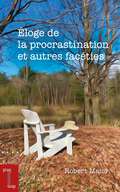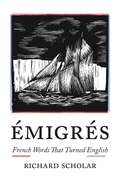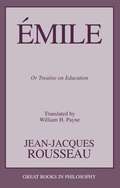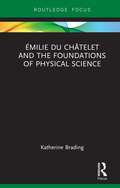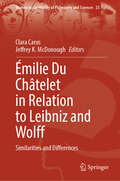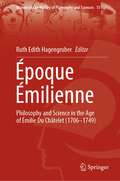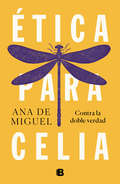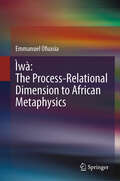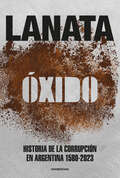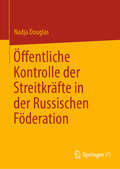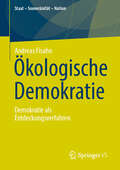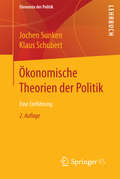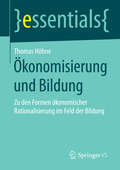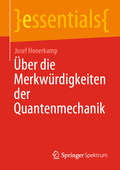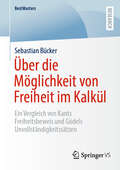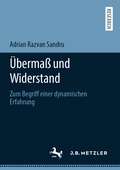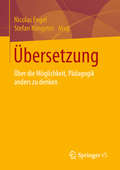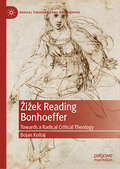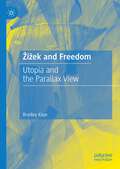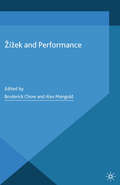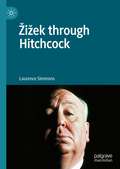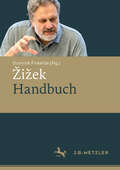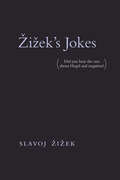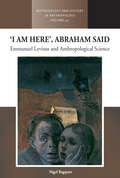- Table View
- List View
Éloge de la procrastination et autres facéties (Essais et fiction)
by Robert MajorAfter his death, a public figure leaves behind an astonishing manuscript – an embarrassment to his godson, the executor of his estate. What should be done with these disconcerting essays, which touch on disparate topics, jumping from the iconoclastic to the ironic, from the moving to the provocative, from the highbrow to the eccentric, at times preposterous and ridiculous, but all fundamentally contradictory? It is a difficult question to answer, especially as none of these essays seem to match the persona he hid behind and seem to have been written against everything he stood for. Is this really a tribute to procrastination from a workaholic? Or a tribute to the tavern from someone who never frequented them? Are these truly tributes? Or are they pranks instead, farcical tricks, intended to be ironic, a full-on hoax, allowing the author to strip away all pretence in order to communicate authentically?There was only one thing left to do: publish them. Que sera sera.
Émigrés: French Words That Turned English
by Richard ScholarThe fascinating history of French words that have entered the English language and the fertile but fraught relationship between English- and French-speaking cultures across the world.English has borrowed more words from French than from any other modern foreign language. French words and phrases—such as à la mode, ennui, naïveté and caprice—lend English a certain je-ne-sais-quoi that would otherwise elude the language. Richard Scholar examines the continuing history of untranslated French words in English and asks what these words reveal about the fertile but fraught relationship that England and France have long shared and that now entangles English- and French-speaking cultures all over the world.Émigrés demonstrates that French borrowings have, over the centuries, “turned” English in more ways than one. From the seventeenth-century polymath John Evelyn’s complaint that English lacks “words that do so fully express” the French ennui and naïveté, to George W. Bush’s purported claim that “the French don’t have a word for entrepreneur,” this unique history of English argues that French words have offered more than the mere seasoning of the occasional mot juste. They have established themselves as “creolizing keywords” that both connect English speakers to—and separate them from—French. Moving from the realms of opera to ice cream, the book shows how migrant French words are never the same again for having ventured abroad, and how they complete English by reminding us that it is fundamentally incomplete.At a moment of resurgent nationalism in the English-speaking world, Émigrés invites native Anglophone readers to consider how much we owe the French language and why so many of us remain ambivalent about the migrants in our midst.
Émile Or Treatise on Education
by Jean-Jacques Rousseau William H. PayneIn his pioneering treatise on education the great French philosopher presented concepts that had a significant influence on the development of pedagogy, and yet many of his ideas still sound radical today. Written in reaction to the stultifying system of rote learning and memorization prevalent throughout Europe in Rousseau's time, Émile is a utopian vision of child-centered education, full of the sentiments of Romanticism, which Rousseau himself inspired. Educators as well as students of philosophy will find much to admire in Rousseau's original and still radical ideas.
Émilie Du Châtelet and the Foundations of Physical Science (Routledge Focus on Philosophy)
by Katherine BradingThe centerpiece of Émilie Du Châtelet’s philosophy of science is her Foundations of Physics, first published in 1740. The Foundations contains epistemology, metaphysics, methodology, mechanics, and physics, including such pressing issues of the time as whether there are atoms, the appropriate roles of God and of hypotheses in scientific theorizing, how (if at all) bodies are capable of acting on one another, and whether gravity is an action-at-a-distance force. Du Châtelet sought to resolve these issues within a single philosophical framework that builds on her critique and appraisal of all the leading alternatives (Cartesian, Newtonian, Leibnizian, and so forth) of the period. The text is remarkable for being the first to attempt such a synthetic project, and even more so for the accessibility and clarity of the writing. This book argues that Du Châtelet put her finger on the central problems that lay at the intersection of physics and metaphysics at the time, and tackled them drawing on the most up-to-date resources available. It will be a useful source for students and scholars interested in the history and philosophy of science, and in the impact of women philosophers in the early modern period.
Émilie Du Châtelet in Relation to Leibniz and Wolff: Similarities and Differences (Women in the History of Philosophy and Sciences #23)
by Jeffrey K. McDonough Clara CarusThis book offers the first detailed comparison between Émilie Du Châtelet's philosophy and her predecessors G.W. Leibniz and Christian Wolff. It highlights the similarities and the differences between her work and the ideas of Leibniz and Wolff. The book's chapters explore a wide range of key concepts and topics, including freedom, love, space, extension, certainty, probability, the continuum, time, eternity, the world apart doctrine, and the principle of sufficient reason. The book as a whole situates Du Châtelet’s thought in the context of her predecessors and highlights how Du Châtelet’s understanding of her sources laid the foundations for the development of her own ideas. This edition will be of crucial interest to the growing community of scholars working on Du Châtelet’s thought as well as scholars of Early Modern Philosophy more generally.
Époque Émilienne: Philosophy and Science in the Age of Émilie Du Châtelet (1706-1749) (Women in the History of Philosophy and Sciences #11)
by Ruth Edith HagengruberThe present book contextualizes Du Châtelet’s contribution to the philosophy of her time. The editor offers this tribute to an Époque Émiliennee as a collection of innovative papers on Emilie Du Châtelet’s powerful philosophy and legacy.Du Châtelet was an outstanding figure in the era she lived in. Her work and achievements were unique, though not an exception in the 18th century, which did not lack outstanding women. Her personal intellectual education, her scholarly network and her mental acumen were celebrated in her time, perceiving her to have “multiplied nine figures by nine figures in her head”. She was able to gain access to institutions which were normally denied to women. To call an epoch an Époque Émilienne may be seen as daring and audacious, but it will not be the last time if we continue to bring women philosophers back into the memory of the history of philosophy. The contributors paid attention to the philosophical state of the art, which forms the background to Du Châtelet’s philosophy. They follow the transformation of philosophical concepts under her pen and retrace the impact of her ideas. The book is of interest to scholars working in the history of philosophy as well as in gender studies. It is of special interest for scholars working on the 18th century, Kant, Leibniz, Wolff, Newton and the European Enlightenment.
Ética para Celia
by Ana De MiguelEste libro no es solo una ética para chicas, es también una llamada a los chicos para que se atrevan a transgredir de verdad: para que dejen de ponerse en el lugar de sus deseos y se pongan en el lugar de las demás. La filosofía nos enseña que lo importante son las preguntas que nos hacemos, siempre que formulemos bien nuestros interrogantes y nos preguntemos por el fundamento de nuestros proyectos. La ética, por su parte es una invitación a ponerse en el lugar de los demás, y sucede que hasta ahora los hombres no se han puesto en el lugar de las mujeres. Con ellas ha valido casi todo: desde borrar su nombre y su historia hasta la violencia sexual. La filosofía y, con ella, la ética puede ayudarnos a comprender las enormes contradicciones a las que tienen que enfrentarse las mujeres en un mundo patriarcal al que los filósofos, aun sin haber estado a la altura, sí aportaron una manera de pensar crítica que nos ha llevado a ser conscientes de las desigualdades y a cuestionar el sistema. Ética para Celia nos invita a mirar de frente la realidad, el hecho de que nuestra vida se ha levantado sobre una doble verdad, con normas morales y fines vitales distintos para mujeres y hombres. Esta doble verdad se ha ido transformando, pero no ha desaparecido. A las jóvenes ya no se las socializa con idea de que sean para los demás, pero sí para ser deseables, que no deja de ser otra forma de ser para los otros.
Ìwà: The Process-Relational Dimension to African Metaphysics
by Emmanuel OfuasiaThis book approaches the subject of African metaphysics historically as it connects Ancient Egypt to Yorùbá. It provides a history of African metaphysics from ancient Egypt or Kemet down to John Boakye Danquah and Placide Tempels in the 20th century and then Innocent Asouzu, Ada Agada, and Aribiah David Attoe, in the 21st century. As it surpasses the deductions of these previous works, it moves further to showcase African originality and approaches to studying reality, whilst resisting the temptation to deduce conclusions from Western philosophy. It is the first book in the history of African philosophy to use a process-relational approach to interrogate African metaphysics. It also serves to harmonize and engage prominent African scholars who have written on the subject of African metaphysics. The general scope of this book centers on engaging the history of distortion and misunderstanding of African metaphysics by providing a relevant and reliable process-relational background as well as an alternative trivalent logic system. Unless African metaphysical theories are understood from this perspective, they will remain powerless to overcome these misrepresentations. It appeals to students and researchers internationally actively working in the fields of African philosophy, Intercultural African studies as well as process studies. ______________________________ “This book is one of the valuable contributions to the emerging field of African philosophy, after decades (1970s–1990s) of rather fruitless debates on the status of the discipline. Like many others, the book side-tracks the seemingly unending controversy of whether or not there is such a thing as African philosophy.” – Godwin Sogolo, Emerittus Professor of Philosophy, National Open University of Nigeria (NOUN). “In the opening lines of the introduction of this monumental book, Dr. Ofuasia announces: “As you read these lines, the earth in which you live in, as an ontological entity is spinning at an estimate estimated speed of 67, 000 mph. This indicates that the perspective that a thing is not in motion or is at rest is one of the fallacies ever fed to humanity. Nothing rests!” I was awe struck by how this revelation from physics extends to metaphysics. This book is a welcoming addition to African metaphysical scholarship as the process-relational approach used to explore Egyptian and ancient Yorùbá thought system in this work creatively intersects emerging discourses on agency both at the animate and what humans call inanimate, ontology, plant sentience, African medicine, cosmogony, the physical sciences, neutral nihilism and other related metaphysical topics. The eclectic interrogation of classical concepts of Ìwà and Nun from the Yoruba and Egyptian intellectual traditions, respectively, is a trail-blazing contribution. Congratulations on this feat, Dr Ofuasia!” – Ademola Kazeem Fayemi, Queensland Bioethics Center, Australian Catholic University, Brisbane. “Dr Ofuasia’s book marries aspects of Egyptian philosophy with ancient Yorùbá metaphysics and process metaphysics, all under the framework of Ezumezu logic, and it works. What has emerged from this marriage is a new and contemporary theory in African metaphysics – Ìwà ontology which is strongly grounded on African thought. This book is recommended for anyone interested in (African) metaphysics.” Aribiah David Attoe, University of the Witwatersrand. “Emmanuel Ofuasia’s text is engaged, at times even - rightfully - angry. This makes this a lively, energetic contribution. I appreciate that. This passion is often missing in philosophy, but it is much needed, especially in this area of research.” – Bjoerne Freter, Hagerstown Community College, Maryland. “In this timely work, Emmanuel Ofuasia throws down a challenge to African philosophers with the claim that process th
Óxido: Historia de la corrupción en Argentina 1580-2023
by Jorge LanataUna investigación integral, histórica y periodística de la corrupción argentina a través de cinco siglos: del Virreinato al Olivosgate, Jorge Lanata recorre este proceso imparable de descomposición nacional y lo ilumina a través de una selección sorprendente de casos tanto poco conocidos como notables. Argentina está oxidada. La corrupción es su óxido. Y se extiende cada vez más sobre el país. Creemos verlo, creemos que está a la vista de todos. Pero, según los últimos estudios, solo el 12% de los hechos de corrupción conocidos llegan a la Justicia y solo el 2% recibe algún tipo de condena. Con el correr de los años, la corrupción ha ido cambiando, expandiéndose, perfeccionándose, poniéndose al abrigo de la impunidad. Aunque algo se mantuvo invariable: el rol del Estado. El inventor de la barrera siempre cobró peaje. En esta investigación histórica y periodística, Jorge Lanata recorre este proceso imparable de descomposición nacional y lo ilumina a través de una selección sorprendente de casos tanto poco conocidos como notables, que arrancan cuando Argentina no era todavía una república y llegan hasta hoy, cuando se pregunta si puede volver a serlo. Una radiografía descarnada para contar un país que -de forma deliberada, por omisión o negligencia- ha construido un sistema funcional al fraude, la malversación, la usurpación, el tráfico de influencias y el robo liso y llano. Un sistema en el que es casi imposible investigar y cuando se investiga, no se sanciona. En el que nunca hay funcionarios inocentes ni culpables, sino tan solo sospechosos. Una herrumbre que nos corroe desde siempre y se expande frente a nuestros ojos.
Öffentliche Kontrolle der Streitkräfte in der Russischen Föderation
by Nadja DouglasDer Band befasst sich mit den Grundlagen der gegenwärtigen Beziehungen zwischen zivilen Akteuren und staatlichen Machtstrukturen. Der Schwerpunkt liegt auf dem Themenfeld der öffentlichen Kontrolle von Streitkräften und der Frage, warum zivile Akteure ein wachsames Auge auf die militärische Institution sowie zivile Behörden, die den Einsatz von Gewalt legitimieren, haben sollten. Am Beispiel von Wehrpflicht und Rekrutierung als Schnittstelle zwischen Militär und Gesellschaft analysiert die Studie den institutionellen Wandel im politisch-militärischen Bereich im postsowjetischen Russland. In kritischer Auseinandersetzung mit der konventionellen Militärsoziologie verlagert das Buch den Fokus weg von der exklusiven Machtbeziehung zwischen politischen und militärischen Eliten im Kontext der nationalen Sicherheit. Stattdessen berücksichtigt es die menschliche und gesellschaftliche Sicherheit, d.h. die Bedürfnisse und Forderungen von Individuen und Gruppen an der Basis, die vom Militär und der herrschenden Sicherheitslage in Russland betroffen sind. Das Buch richtet sich an Leser mit Interesse an zivil-militärischen Beziehungen, gegenwärtiger russischer Gesellschaftspolitik und Theorien sozialer Bewegungen.
Ökologische Demokratie: Demokratie als Entdeckungsverfahren (Staat – Souveränität – Nation)
by Andreas FisahnDieses Buch untersucht die Frage, wie ökologische Interessen in der Demokratie berücksichtigt werden oder werden sollten. Die Demokratie befindet sich ebenso in einer Krise wie die Umwelt und die ökologische Politik. So erscheint es notwendig, der Frage nachzugehen, wie in der Demokratie allgemeine Interessen, welche „Interessen&“ der natürlichen Umwelt einschließen, gebildet werden. Der Autor des Buches verfolgt somit einen interdisziplinärer Ansatz, der für die Debatte in verschiedenen Disziplinen der Geisteswissenschaften Anregungen enthält. Zielgruppen Politik- und Rechtswissenschaften, NGOs und Engagierte im Bereich Umwelt oder Demokratie.
Ökonomische Theorien der Politik
by Klaus Schubert Jochen SunkenÖkonomische Theorien der Politik verwenden das theoretische und methodische Instrumentarium der Wirtschaftswissenschaften für die Analyse von politischen Strukturen, Prozessen und Inhalten. Da der ökonomische Ansatz der Politik eine immer größer werdende Rolle in der Politikwissenschaft spielt, werden in dieser Einführung die grundlegenden Begriffe und Theorien in verständlicher Form dargestellt. Ziel ist es, einen ersten Überblick über Denkweise, Logik und Mehrwert ökonomischer Theorien der Politik zu geben.
Ökonomisierung und Bildung: Zu den Formen ökonomischer Rationalisierung im Feld der Bildung (essentials)
by Thomas HöhneÖkonomisierung als Rationalisierung im Arbeits- und Produktionsbereich stellt ein kapitalistisches Grundprinzip dar, das seit den 1980er Jahren zunehmend auf außerökonomische Bereiche übertragen wird. Vorangetrieben wird diese Entwicklung national sowie international vor allem durch Staat, Politik und transnationale Akteure, die zunehmend ökonomische Steuerungsmittel wie Evaluation und Indikatorensteuerung in den Bildungsbereich einführen. Primäres Ziel ist es, Wettbewerb systematisch im Bildungssystem als Entwicklungsinstrument zu etablieren. Hierdurch sollen marktähnliche Strukturen - sogenannte Quasi-Märkte - geschaffen werden, deren bildungsökonomisches Ziel insgesamt eine nachhaltige Steigerung der gesamtgesellschaftlichen Produktivität von Bildung ist.
Über die Merkwürdigkeiten der Quantenmechanik (essentials)
by Josef HonerkampDie Quantenmechanik ist eine physikalische Theorie für Objekte des Mikrokosmos, also z.B. für Atome oder Elektronen. Sie hat sich bisher bestens bewährt, führt aber dazu, dass wir diesen Objekten Eigenschaften und Relationen zubilligen müssen, die weder mit unserem gesunden Menschenverstand noch mit den Begriffen der klassischen Physik vereinbar sind. Diese Merkwürdigkeiten werden vorgestellt und ihre Bedeutung für unser Erkenntnisvermögen und für ein Weltbild wird diskutiert.
Über die Möglichkeit von Freiheit im Kalkül: Ein Vergleich von Kants Freiheitsbeweis und Gödels Unvollständigkeitssätzen (BestMasters)
by Sebastian BückerDie Frage nach den Denkfähigkeiten von Maschinen beschäftigt die Menschheit, seit Turing 1950 diese Frage das erste Mal aufwarf. Um das Verhältnis menschlicher und maschineller Denkfähigkeit zu beleuchten, werden in diesem Buch die Argumentationsmodi von Kants Freiheitsbeweis und Gödels Unvollständigkeitssätzen verglichen und aufgezeigt, inwiefern beide Beweise eine analoge inferentielle Struktur aufweisen. So kann auf Probleme der Selbstreferenzialität aufmerksam gemacht werden, die sich insbesondere dann ergeben, wenn Anerkennungsverhältnisse von Maschinen gedacht werden sollen.
Übermaß und Widerstand: Zum Begriff einer dynamischen Erfahrung
by Adrian Razvan Sandru„Übermaß und Widerstand“ ist ein systematischer Versuch, eine Brücke zwischen der transzendentalen Philosophie Kants und der Gegebenheitsphänomenologie Jean-Luc Marions zu spannen, wobei der Ansatz einer dynamischen Konstitution der Erfahrung vertreten wird, in welcher sich die kognitiven Strukturen des Subjektes im Dialog mit erlebten Phänomenen an ihre Auffassungsmöglichkeiten anpassen. Damit ist die Beschreibung einer dialogisch-dynamischen Erfahrung beabsichtigt, welche die hermeneutischen und spontanen Leistungen des Subjektes anerkennt sowie Raum für eine Autonomie phänomenaler Manifestierung macht, d.h., dass die Phänomene die Bedingungen ihrer eigene Auffassung durch ein erkennendes und reflektierendes Subjekt mitgestalten. Dementsprechend wird hier der Fokus auf ein Subjekt gelegt, welches hauptsächlich reflektierend tätig ist und dabei an sich arbeitet – d.h. an seinem erkennenden Vermögen, um sich einem breiten Spektrum phänomenaler Möglichkeiten aussetzen zu können. Dieser Ansatz wird daher für eine aktive Passivität des Subjektes argumentieren, wobei die Empfänglichkeit des Subjektes mit seinen Fähigkeiten zur Reflexion eng zusammenhängt.
Übersetzung: Über die Möglichkeit, Pädagogik anders zu denken
by Nicolas Engel Stefan KöngeterIn diesem Band wird mittels des Übersetzungsbegriffs die Möglichkeit verhandelt, Pädagogik anders zu denken. Sozial- und kulturwissenschaftliche Übersetzungstheorien werden dabei genutzt, um die theoretische Produktivität von Übersetzung für die Pädagogik auszuloten: Als Topos pädagogischer Theoriebildung lassen sich mit Übersetzung Verhandlungen über die Bedeutung von Anderem und Anderen und über die Geltung von pädagogischem Wissen im Horizont eines möglichen oder zukünftigen Anders-Sein thematisieren. Ein pädagogischer Einsatz des Übersetzungsbegriffs verspricht zudem mögliche Antworten auf die Frage nach dem Wie der Vermittlung von Bedeutung und Wissen.Die Beiträge zielen dementsprechend im ersten Teil des Bandes darauf, Übersetzung als begriffliche Kategorie pädagogischer Theoriebildung zu entwerfen. In einem zweiten Teil wird Übersetzung als Analysekategorie der Begegnung kultureller Lebensformen und Ordnungen eingesetzt. Schließlich fokussiert der dritte Teil Formen der pädagogischen Theorieproduktion und erziehungswissenschaftlichen Wissensarbeit im transnationalen bzw. globalen Kontext.
Žižek Reading Bonhoeffer: Towards a Radical Critical Theology (Radical Theologies and Philosophies)
by Bojan KoltajThis book critically examines Bonhoeffer’s social theology in Sanctorum Communio from the perspective of Žižek’s theological materialism. Specifically, it refers to Žižek’s struggling universality of abandonment and its ethic of indifference in consideration of Bonhoeffer’s transcendental personalist community of saints and its ethic of universal love. As such, it represents an attempt to reflect on the content, act, and implication of theological thought without presuppositions and an argument for the necessity of such an approach—a radical approach that is true to theology’s critical character of challenging narratives and revealing exceptions in search of truth.
Žižek and Freedom: Utopia and the Parallax View
by Bradley KayeThis book is an exploration of Žižek's theory of freedom. By examining key passages in Žižek's work the aim is to provide a functional, serviceable philosophy of power and ideology and show how this philosophy of power relates to freedom. Although some, like Noam Chomsky, have criticized Žižek's work as having no guiding principles, it is suggested that this misses the fact that Žižek's philosophy utilizes a dialectical methodology that often appears contradictory. Though a highly astute reader with a background in the philosophical texts he frequently cites (the German Idealists, Freud, and modern philosophers), it becomes clear that there is a uniquely Zizekian philosophy that mobilizes a radical hermeneutics of freedom.
Žižek and Performance (Performance Philosophy)
by Broderick Chow Alex MangoldThe first edited volume to examine philosopher Slavoj Žižek's influence on, and his relevance for, theatre and performance studies. Featuring a brand new essay from Žižek himself, this is an indispensable contribution to the emerging field of Performance Philosophy.
Žižek through Hitchcock
by Laurence SimmonsMaverick Slovenian cultural theorist, philosopher and psychoanalyst Slavoj Žižek has made his name elaborating the complexities of psychoanalytic and Marxist theory through the exotic use of examples from film and popular culture. But what if we were to take Žižek’s pretensions to cinephilia and film criticism seriously? In this book, adopting Žižek’s own tactic of counterintuitive observation, we shall read the corpus of Alfred Hitchcock’s films (‘one of the great achievements of Western civilization’) and Žižek’s idiosyncratic citation of them in order to arrive at a position where we can identify the core commitments that inform Žižek’s own work. From the practice of Hitchcock we shall (hopefully) arrive at a theory of Žižek (just as Žižek in his collection Everything You Always Wanted to Know About Lacan (But Were Afraid to Ask Hitchcock) (Verso, 1992) arrives at a theory of Lacan from the practice of Hitchcock). To achieve this goal each chapter looks at a specific film by Hitchcock and explores a specific key concept crucial to the elaboration and core of Žižek’s ideas.
Žižek-Handbuch
by Dominik FinkeldeSlavoj Žižek ist der international einflussreichste Philosoph und Vertreter einer Kritischen Theorie der Gegenwart. Er hat mit seinen mehr als 50 Büchern die Grenzen der Kulturtheorie, der Philosophie, der Psychoanalyse und der Subjektphilosophie des Deutschen Idealismus erweitert und Debatten von der politischen Philosophie bis zur Ontologie geprägt. Mit unübertroffener Kreativität und schillerndem Witz präsentiert er innovative und herausfordernde Analysen. Sie betreffen die politischen Verhältnisse der Gegenwart ebenso wie klassischen Fragen von Wahrheit und Schein, Freiheit und Unterwerfung. Konzepte wie Genießen als politischer Faktor, gespaltene Subjektivität, Objekt klein a, Anrufung und Parallaxe haben das Vokabular der kontinentalen Philosophie der Gegenwart wesentlich bereichert. Das Handbuch versammelt national und international anerkannte Philosophinnen und Philosophen, die sich seit den 1990er Jahren immer wieder mit Žižeks Philosophie auseinandergesetzt haben. Nach einem (werk-)biographischen Überblick führen sie in seine Werke ein, ebenso wie in die Wirkungsweisen derselben auf die zeitgenössische Theorie. Auch Kritik und Kontroversen, die Žižeks Publikationen und Positionen ausgelöst haben, werden rezipiert und dargelegt.
Žižek’s Jokes: (Did you hear the one about Hegel and negation?)
by Slavoj ŽižekThe good news is that this book offers an entertaining but enlightening compilation of Žižekisms. Unlike any other book by Slavoj Žižek, this compact arrangement of jokes culled from his writings provides an index to certain philosophical, political, and sexual themes that preoccupy him. Žižek's Jokes contains the set-ups and punch lines—as well as the offenses and insults—that Žižek is famous for, all in less than 200 pages. So what's the bad news? There is no bad news. There's just the inimitable Slavoj Žižek, disguised as an impossibly erudite, politically incorrect uncle, beginning a sentence, “There is an old Jewish joke, loved by Derrida...“ For Žižek, jokes are amusing stories that offer a shortcut to philosophical insight. He illustrates the logic of the Hegelian triad, for example, with three variations of the “Not tonight, dear, I have a headache” classic: first the wife claims a migraine; then the husband does; then the wife exclaims, “Darling, I have a terrible migraine, so let's have some sex to refresh me!” A punch line about a beer bottle provides a Lacanian lesson about one signifier. And a “truly obscene” version of the famous “aristocrats” joke has the family offering a short course in Hegelian thought rather than a display of unspeakables. Žižek's Jokes contains every joke cited, paraphrased, or narrated in Žižek's work in English (including some in unpublished manuscripts), including different versions of the same joke that make different points in different contexts. The larger point being that comedy is central to Žižek's seriousness.
‘Guilty Women’, Foreign Policy, and Appeasement in Inter-War Britain: Foreign Policy, And Appeasement In Inter-war Britain
by Julie V. GottliebBritish women were deeply invested in foreign policy between the wars. This study casts new light on the turn to international affairs in feminist politics, the gendered representation and experience of the Munich Crisis, and the profound impression made by female public opinion on PM Neville Chamberlain in his negotiations with the dictators.
‘I am Here’, Abraham Said: Emmanuel Levinas and Anthropological Science (Methodology & History in Anthropology #47)
by Nigel RapportEmmanuel Levinas’s philosophical work on ‘the Other’ offers a challenge to the discipline of anthropology that claims knowledge of the human. For Levinas, the ‘secrecy’ of subjectivity – a fundamental facet of the human condition – demands an ethics of ignorance and not-knowing; the mystery of otherness is only to be approached through ‘inspiration’. Can anthropology meet a Levinasian challenge if it would define itself as a science as well as a humanistic documentation of social life? This book endeavours to take Levinasian and anthropological precepts equally seriously and offers a radical conclusion.
